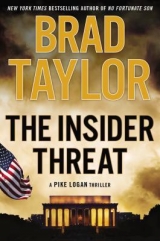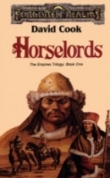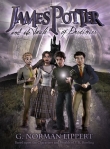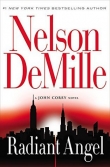
Текст книги "The Insider Threat"
Автор книги: Brad Taylor
Жанр:
Боевики
сообщить о нарушении
Текущая страница: 1 (всего у книги 30 страниц)
Also by Brad Taylor
One Rough Man
All Necessary Force
Enemy of Mine
The Widow’s Strike
The Polaris Protocol
Days of Rage
No Fortunate Son
SHORT WORKS
The Callsign
Gut Instinct
Black Flag
The Dig
The Recruit


An imprint of Penguin Random House LLC
375 Hudson Street
New York, New York 10014

Copyright © 2015 by Brad Taylor
Penguin supports copyright. Copyright fuels creativity, encourages diverse voices, promotes free speech, and creates a vibrant culture. Thank you for buying an authorized edition of this book and for complying with copyright laws by not reproducing, scanning, or distributing any part of it in any form without permission. You are supporting writers and allowing Penguin to continue to publish books for every reader.
DUTTON—EST. 1852 (Stylized) and DUTTON are registered trademarks of Penguin Random House LLC.
LIBRARY OF CONGRESS CATALOGING-IN-PUBLICATION DATA
Taylor, Brad, 1965–
The insider threat : a Pike Logan thriller / Brad Taylor.
pages ; cm
ISBN 978-0-698-19085-6
I. Title.
PS3620.A9353I57 2015
813'.6—dc23
2015009129
This book is a work of fiction. Names, characters, places, and incidents either are the product of the author’s imagination or are used fictitiously, and any resemblance to actual persons, living or dead, business establishments, events, or locales is entirely coincidental.
Version_1
To Jodie and Allan, for always being there, no matter what.
CONTENTS
Also by Brad Taylor
Title Page
Copyright
Dedication
Epigraph
Chapter 1
Chapter 2
Chapter 3
Chapter 4
Chapter 5
Chapter 6
Chapter 7
Chapter 8
Chapter 9
Chapter 10
Chapter 11
Chapter 12
Chapter 13
Chapter 14
Chapter 15
Chapter 16
Chapter 17
Chapter 18
Chapter 19
Chapter 20
Chapter 21
Chapter 22
Chapter 23
Chapter 24
Chapter 25
Chapter 26
Chapter 27
Chapter 28
Chapter 29
Chapter 30
Chapter 31
Chapter 32
Chapter 33
Chapter 34
Chapter 35
Chapter 36
Chapter 37
Chapter 38
Chapter 39
Chapter 40
Chapter 41
Chapter 42
Chapter 43
Chapter 44
Chapter 45
Chapter 46
Chapter 47
Chapter 48
Chapter 49
Chapter 50
Chapter 51
Chapter 52
Chapter 53
Chapter 54
Chapter 55
Chapter 56
Chapter 57
Chapter 58
Chapter 59
Chapter 60
Chapter 61
Chapter 62
Chapter 63
Chapter 64
Chapter 65
Chapter 66
Chapter 67
Chapter 68
Chapter 69
Chapter 70
Chapter 71
Chapter 72
Chapter 73
Chapter 74
Chapter 75
Chapter 76
Chapter 77
Chapter 78
Chapter 79
Chapter 80
Chapter 81
Chapter 82
Chapter 83
Chapter 84
Chapter 85
Chapter 86
Chapter 87
Chapter 88
Chapter 89
Chapter 90
Chapter 91
Chapter 92
Chapter 93
Chapter 94
Chapter 95
Acknowledgments
About the Author
IS are animals. They’re not human. They have a bloodlust the like of which I’ve never seen—it’s as if they enjoy killing. They revel in cutting heads off—it’s like their trademark.
–Kurdish refugee Ekram Ahmet, on witnessing atrocities in the town of Kobani after the Islamic State rampaged through it
You think you’re safe where you are, in America or Britain. You think you are safe, you are not safe. We are coming for you.
–Florida resident Moner Mohammad Abu-Salha, the first United States suicide bomber, in a videotaped speech before his death in Syria
I say to America that the Islamic caliphate has been established . . . and we will raise the flag of Allah in the White House.
–Abu Mosa, spokesman for the Islamic State
1
Jacob Driscoll watched the four men, fascinated that they showed no resistance whatsoever. Completely resigned to their fate. A fly landed on the forehead of the nearest one—the one he was to kill—and the captive let it crawl about, tasting his sweat.
Jacob listened to the spokesman continue to rail in Arabic, a small crowd gathered in the square, outnumbered two to one by the gunmen. He didn’t understand the language but could guess at what was being said.
These men are traitors. This is the fate that befalls all who oppose the Kalipha. Stand with us, or suffer the same.
Far from cheering, the small grouping of people looked cowed, as if they wanted to be anywhere but there. Well, that wasn’t exactly true. They’d rather be on the outside watching than on their bellies with their necks stretched out.
The spokesman droned on, building toward a grand spectacle, his black tunic covered in dust, the AK-47 swinging about with his body language, and Jacob knew it was coming close. Execution time. His first.
In the seven months he’d been inside the cult of death known as the Islamic State, he’d witnessed many, many executions, acting as a gunman on the periphery, but he’d never done one on his own.
Not that he minded killing. It hadn’t bothered him in the past, but the action had always been at the barrel of a gun, and he wondered how this would feel. In a detached, almost scientific way, he wondered if it would be different from carving the carcasses of the rabbits he’d killed in his youth. When he’d literally had to hunt for survival.
He looked at his partners, seeing Hussein fidgeting, the nervous tics growing more pronounced. He wasn’t built for this cauldron, and Jacob thought it ironic that Hussein was the one who had recruited them. Convinced them to come to this faraway land.
Not that they had many alternatives after fleeing the cesspool of “rehabilitation” they’d been placed within. Killing the guard had ensured that.
Carlos and Devon, now known as Yousef and Talib, showed no such hesitation. They had embraced the cult of death completely, changing their names and fervently soaking up the Salafist ideology like a cactus in the rain. They were on board one hundred and ten percent, considering this day a sacred one.
Jacob played the role, but he’d long since lost belief in religion. Any religion. He’d had that whipped out of him by the pious Christian guards in the white house.
No, it wasn’t the religion. It was the power. In this land, from Mosul to Raqqa, all that mattered was the courage of the battle-axe, and he’d found a skill that he didn’t realize he possessed. He knew he would die here, but it caused no angst. In truth, he had died long ago. All that remained was for him to slip the coils of his mortal frame. The difference was a cause. He wouldn’t end up as a page-two news story, caught stealing hubcaps and gunned down in the street. And neither would the men he had brought.
Hussein may have recruited him, and the other two may have changed their names, diving headlong into the myth of the Islamic State, but he was the leader of their small group. Just as he had been inside.
With that mantle came a responsibility.
A man in black, completely covered from head to toe, like something out of a Star Wars movie, began walking his way. Jacob inwardly grimaced.
His name was Abu Yabba Dabba Do, or some other unpronounceable Arabic crap, but Jacob called him Ringo. As in the Beatles. An Islamic fighter from England, he and others like him considered themselves above Jacob and his band because they were of Arabic descent. Ringo was Yemeni. Jacob was a mutt.
“So, Jacob, are you ready for your first kill?”
He drew out the name Jacob, showing his disdain for the Biblical reference and the fact that Jacob refused to take an Arabic one.
Jacob said, “It isn’t my first, you shit.”
Ringo smirked and said, “Death with a gun is not killing. You’ll see. This is absolute control. Absolute. As Mohammad dictated. But your little band of Lost Boys wouldn’t know about that.”
He was being tested, which was what he expected. Ringo had beheaded many men, and had developed a cult following on Twitter and other social media, but he was an ass. A small man who gained importance after the fact. After the fighting was done, using his knife and a camera to become famous. At his core, Jacob knew Ringo felt a challenge from him and his friends.
Four tightly knit brothers, forged by a fire outside the Islamic State, with—except for Hussein—no attachment to any Arabic or Islamic heritage, they were an anomaly. True foreign fighters in a foreign land. They called themselves the Lost Boys because of the iconic ’80s movie, but the analogy was apt. They lived in a world of the shadows.
And they killed better than most.
Jacob said, “Ringo, step away.”
That was all.
And Ringo did.
Ringo had seen the punishment the Lost Boys had endured. With two blond Caucasians, one African American, and Hussein, the one who had recruited them, their arrival had been anything but welcoming. Convinced they were spies or, at best, journalists, the emir had subjected them to inhuman conditions and cruelty. And they had thrived.
Because of the white house.
Ringo said, “You are not the future. We are the future. Kafir.”
Jacob looked up, catching Ringo’s pompous eyes with the dead ones he possessed, and said, “The future is dictated by the man who isn’t afraid to die. Is that you?”
Ringo said, “I am not afraid. I have proved that multiple times.”
“Do you wish to die today? Without fear?”
Jacob knew his reputation from Mosul preceded him. Knew that Ringo hated the fact that he was a blond-headed, blue-eyed American, with no ancestral ties to the coming caliphate, but he also knew that Ringo couldn’t get past the stories that had grown into legends.
Ringo snarled and said, “We’ll see, Lost Boy. We’ll see.”
And walked away.
The man on the square finished his speech, which was like every other one, and not unlike speeches given by the blowhard preachers Jacob had heard every night in the reform school. There was a flourish at the end, then a knife placed in his hand.
He looked at the four men prostrate in front of him, and felt the hatred.
They were snitches. People who’d sold out the clan for money, giving information to the enemy for targeted air strikes and intelligence on how the Islamic State functioned. Jacob would have had qualms about killing someone for eating pork or not wearing a head wrap, but he had none for traitors.
They were the ones who had caused the pain in his past. Had caused the trips to the white house.
He looked at his man, a Kurd. Strange that such a person had been able to penetrate so deeply, given the fight against the Peshmerga, but he had. And he’d given massive information about the Islamic State to the Americans. Now he would die.
But the fly on his forehead would live.
He swished the man’s face and saw it buzz away. Then leaned down, wrapping his hand into the hair, pulling it up.
As he had as a child, when the next “new” father had come into the room, stinking of whiskey and taking off his belt, he let his humanity float away, flying on a cloud. Gone.
He became a man of stone.
He looked down the line, seeing the ubiquitous cameraman recording the killing, then Carlos and Devon eagerly snatching up their own heads and looking to him for guidance. He waited on Hussein.
He caught the tears on Hussein’s cheeks and wondered if the man would go through with it. He saw Ringo advancing and shouted, “Hussein!”
His friend looked at him and Jacob said, “For the white house. Do it for the white house.”
Hussein rapidly nodded, then pulled up the head.
Jacob turned to his own man, seeing his eyes rolling back, feeling the shaking in his body, the bright orange smock soaked in sweat.
The first swipe brought a gout of blood. He reached bone, and began sawing.
2
Omar al-Khatami watched the tape without a shred of revulsion, technically looking for the propaganda value. His media specialist described how he had enhanced the image, optimizing it for YouTube, and said, “This will show the Americans what happens to their spies, and prevent others from following in their steps.”
Omar said, “Yes. Post it tonight. End with the heads on the bodies.”
The door opened and the emir of northern Syria entered.
Mildly surprised, Omar exchanged greetings and said, “Adnan, I thought you weren’t returning for two days. What is happening with the oil?”
Adnan smiled and said, “It’s coming along. We only have the wells pumping at a quarter of capacity because of a lack of technical skill, but we have found men to change that. Soon, we will double our output and our revenues. As long as you don’t lose the fields.”
Omar said, “No chance of that.”
“Good, because I have some news. The caliph has bestowed a great honor on you. He has promoted you to the emir of external operations.”
The mention of the leader of the Islamic State brought a pause. Confused, Omar said, “External operations? I am the military commander here. I still have work to do. Aleppo to take. Damascus to burn.”
“The caliph has heard of your Lost Boys, and he thinks it is time to use them.”
“Then do so, but don’t pull me from my men. They fight because of me. The time is growing short for victory. This will be a setback we can’t afford, given the American attacks.”
Adnan scowled and said, “The caliph believes in you. And your American cell. He chose you.”
“Why? We have many men who could do this. You, for instance.”
“Because of your skill, for one. And because you are Chechen. You have traveled in Europe. You know the contacts. You can build the attack he desires.”
“These Lost Boys are untested. I’m unsure of their commitment.”
Adnan looked at the computer screen, the video paused with four men slicing and cutting. “Is this not them?”
“Yes.”
“They show commitment here.”
“It could be simple fear. Hussein, the Jordanian, cried throughout.”
“And the others?”
Omar grudgingly admitted they showed no qualms, but said, “The leader of these so-called Lost Boys hasn’t even taken a proper name. He still goes by Jacob.”
“But you tested him, yes?”
Omar nodded. Adnan said, “The name is why we want them. They will all revert back to their true names. They are gems buried in the sand. Four Americans with no ties to America. No families, no Facebook, no Twitter. They are unknown. Unlike the others who brag to their friends back home, nobody knows they exist. No authorities are fervently tracking their moves. True?”
“Yes. We instructed them on methods of recruitment, but they have shown no interest.”
“Good. Keep it that way. Their mission will be the greatest recruitment drive we have ever seen.”
The media specialist fidgeted, getting Adnan’s attention. He said, “Emir, they are on this video. The one we’re going to post for the world to see.”
“Don’t. Broadcast the stills of the verdict, but keep the executioners out.”
Omar said, “We lose the impact with our own people. They need to see. They need to fear.”
“Then let our men see it, but obscure the faces, and do not put it on social media. The Americans must be protected, and those kafirs in the United States have ways of determining the tiniest things.”
Omar nodded. “It will be done. What about me?”
Adnan looked at him with a question, and he said, “When do you wish me to start, and what will the target be?”
“Targets. Plural. Every attack attempted by that windbag Zawahiri and his diseased al Qaida has resulted in failure because the kafirs managed to hear about it before execution. We have to assume the same will happen here, so we will plan two attacks. One for them to chase, and one for you to execute.”
Omar went through the ramifications in his mind. Having fought in Grozny against a barbaric Russian army, he recognized the wisdom. He said, “Just preparation for the false flag attack?”
“No, no. A real attack. One that you will plan from start to finish. You pick the target and the method. The only parameter is that it must be outside of the caliphate. Outside the borders here. If it succeeds, so much the better, but its primary mission is to protect your American cell. Obviously, don’t tell the other team about that. Let them think they are the chosen ones.”
Omar absorbed the words, glancing away and nodding, thinking through the possibilities. He said, “And the real target?”
Adnan smiled and said, “The real one will destroy the heart of the kafirs.”
3
Waiting on the president to finish, eyes glued to a television, Colonel Hale sat with the rest of the Oversight Council, watching him getting raked over the coals in the White House James S. Brady Press Briefing Room. Kurt heard a little exasperation escape President Warren, a sign of the pressure he was under. Kurt felt for the president, but was glad it wasn’t him on the stage. The conversation would have been much less civil.
“Kathy, I don’t know how to make it any more plain. None of the men in the picture are either American or working for United States intelligence. They are not in any capacity agents of the United States. Clearly, those barbarians will kill anyone just to prove a point. And that point is fear.”
The hands in the pressroom rose again and President Warren said, “Thank you,” then walked off, hearing a chorus of shouted questions. Sitting in the Old Executive Office Building next door to the White House, Kurt knew it would be a good ten minutes before he arrived for their meeting.
He looked around the room. Only half of the thirteen members of the Council were present, the other half most likely getting castigated right now in the Oval Office over the scourge of the Islamic State.
Kurt knew how President Warren felt: impotent.
For nearly a decade he’d been hunting terrorists with a unique counterterrorist organization that had unparalleled success; yet despite its efforts, a greater threat had appeared. Not only appeared but had thrived like the spread of Ebola in a ward of children. And his unit could do nothing about it.
The thought made him sick, driving home the fact that the application of military force would never be decisive in this fight. The roots were too deep, and the siren call too sweet. No matter how many terrorists he prevented from individually killing, there was a pervading ability for ideology to transcend logical thought, spreading like a cancer through whole societies he would have otherwise thought normal, civilized humans.
Because of it, the Islamic State had become the most powerful terrorist organization on the face of the earth.
Encompassing broad swaths of terrain across Syria and Iraq, the group possessed a brutality unheard-of in the modern world. But it was not unlike the history of the past. The Islamic State cowed its opponents with an unparalleled ability to instill fear, using new social media grafted on twelfth-century barbarism to depict beheadings, crucifixions, torture, and mass executions, and in so doing recruiting waves of others to continue the killing.
As much as Kurt would have liked to take the war to them, that wasn’t his job. The current fight was for overt conventional and special operations—something he had done long ago, but had given up for the secret war. A war he had thought he was winning. Now he wasn’t so sure.
He was the commander of a Taskforce created after 9/11, designed to operate in the shadows outside of the established intelligence or defense architecture. In short, to operate outside of the law. The entire experiment had been an enormous risk—but deemed necessary due to the threat. They worked without legislative oversight, and routinely flouted the Constitution to protect US national interests—read: US lives—and, while Kurt had his qualms about creating such an organization, he’d agreed to head it up because the menace had been grave.
Now, after nearly a decade of work, he wondered if it had been worth it. The threat had grown beyond grave, and they’d created an organization that could prove absolutely cancerous to US liberties. And for what? To see the rise of the most powerful terrorist organization in history ripping through the Middle East like Genghis Khan?
The light flashed above the SCIF secure door, and President Warren entered, followed by Kerry Bostwick, the director of the CIA, Alexander Palmer, the national security adviser, and the secretary of state, Jonathan Billings.
They took their seats, and without preamble, a staffer brought up a digital photo showing four bodies lying facedown, dressed in orange, each with a grisly head positioned above the shoulder blades.
President Warren said, “Everyone here?”
Kurt said, “Everyone except for the vice president.”
The Oversight Council was the sole body that approved Taskforce actions. With the exception of Easton Beau Clute, the chair of the senate select committee on intelligence, all were either civilians or in the executive branch. The president had wanted no part of politics interfering with the decidedly explosive operations the Taskforce conducted, and had made the decision to exclude the legislative branch.
Clute had been read on because of a past operation involving his son and daughter. While serving in the military, both had been taken hostage and faced certain death. They’d been saved from slaughter by the Taskforce. Because of it, Kurt had no doubt about his loyalty.
President Warren said, “Kerry, give them the damage.”
The D/CIA said, “We have managed to introduce three assets into the architecture of the Islamic State. Their crypts are BOBCAT, LEOPARD, and COUGAR. The third from the end in the picture was BOBCAT, and he was the only one reporting.”
Kurt thought, Holy Shit. He was ours.
“BOBCAT was a Kurd we’d recruited in Sulaymaniyah a long time ago, back when we were still in Iraq and still fighting against the Ba’athists and al Qaida. We activated him seven months ago, and he agreed to penetrate into Syria. We knew it was a risk, because he was a Kurd, but there have been several reports about Kurdish recruits, so much so that the Kurdistan administration is beginning to fear a second front, inside its territory. He made it in and began reporting, surprising the hell out of us. I mean, he was really reporting. Quality stuff. He was very good, and our biggest fear was that he’d be caught by a Kurdish PKK, YPG, or some other Peshmerga unit and skinned alive as a traitor. We never saw this coming.”
The secretary of defense said, “And the others? Are they in the picture as well?”
“No. We don’t know who they are. Probably poor saps just caught in the wrong place at the wrong time, or on the outside, reporting for one of the Gulf States or a rival militia. They aren’t ours.”
Kurt said, “You mentioned ‘quality stuff.’ What was he reporting?”
“You know our greatest fear is that a bunch of radicalized citizens come home or go to Europe to wreak havoc. With the FBI in the United States and the CIA’s liaison with European allies, we have a pretty tight handle on who’s gone overseas. Or at least we thought we did. Ninety-nine percent are ‘citizens’ of a country but are one step removed from the Middle East. Like the English rapper who beheaded James Foley. He’s a British citizen officially, but he’s of Egyptian descent and his father was extradited to the United States for the African embassy bombings in ’98. Which is to say, he had a background of terrorism to begin with.
“BOBCAT popped our comfortable bubble on our view of the threat. Six weeks ago he reported on a group called the ‘Lost Boys.’ He didn’t know what they were, only that they existed. It was included with a ton of other reporting from him. Four days ago, he sent an in-extremis message saying they were United States citizens, and they were ‘Americans.’ That was all. We don’t know what he meant, but we think it indicates that they’re not of Arabic descent. They’re pure, dyed-in-the-wool all-Americans. And they might be coming home.”
His words settled in the room like a foul stench and President Warren said, “So, the question is, what do we do about it?”
Secretary of State Billings opened his mouth, and, after the words spilled out, Kurt wondered if he’d forgotten every single Taskforce mission he’d ever been involved with. Or maybe he was just stupid. But then again, Kurt had grown a little biased against the man.
“Can’t the Taskforce get in there? Maybe send them to Damascus to start looking for these guys?”
Kurt waited for someone to describe how stupid that was, then realized it was on his shoulders. He said, “Sir, we are not a green-machine combat force. We operate within the fabric of sovereign nations, taking the fight to the terrorists who use the infrastructure of those nations either wittingly or unwittingly. Clandestinely.”
“Yeah? So what? Wasn’t Pike’s team in Damascus a few years ago?”
Kurt ground his teeth, looking at the president. Warren simply nodded at him to continue, but with a little bit of a glare, meaning, Don’t embarrass him.
“Okay, the ‘so what’ is that, for one, ISIS isn’t in Damascus. President Assad still owns that terrain. Even if we could get a team in—which we can’t now—it would do no good. Secondly, the damn country is a war zone. I don’t know if you’ve been watching the news, but we’re pummeling the shit out of them from the air. The Taskforce operates using plausible covers in otherwise unsuspecting countries. I can’t send a team of supposed agricultural engineers into Syria and expect that cover to last more than five minutes. There are no NGO gringos operating in the countryside. There’s no way to penetrate ISIS with the Taskforce. I mean, are you dumb enough to think they could drive into Raqqa, the heart of the Islamic State, wearing mirrored shades and hauling genetically altered wheat seeds and not expect them to end up on their own video?”
He saw President Warren scowl at the last statement and turned his own glare on the man who’d asked the question.
Billings snapped his head up at the harsh words, glancing toward President Warren for support. He wasn’t getting any. He said, “What about your vaunted walking disaster? Pike Logan? We pulled him back in against my vote, but maybe we can use him here. Surely he could do something. I thought he was Captain America.”
Kurt knew he was being baited. Pike was the best team leader he had, with a supernatural ability to solve problems. Which is to say he killed terrorists with an unbridled skill. He was also a trouble magnet—both on the enemy side and on the side of the Taskforce, causing massive headaches when he went off the reservation, using his own intuition instead of listening to the very council that was supposed to authorize his actions. Because of it, he’d been fired twice, and brought back into the fold each time due to his abilities. At the end of the day, no one could argue with success.
Kurt knew Billings was sick of being on the Oversight Council. Tired of the risk of being exposed for operating outside the law, leaving his long tenure in public service in tatters on the front page of the Washington Post. He was a career diplomat, and the very notion of the Taskforce assaulted his sensibilities. He didn’t like authorizing missions for a normal team, but was petrified of Pike. In his mind, Logan was a loose cannon who was going to cause the downfall of all of them. Pike’s past successes mattered little. Secretly, Kurt believed Billings would rather have a terrorist attack occur than sit on the Council for one second longer.
As much as he wanted to, Kurt didn’t need to get in a fight right now. He chose the better—and honest—answer.
He said, “Yeah, I’m with you. If anyone could do it, it would be Pike’s team. Unfortunately, he’s engaged right now in Africa. As a matter of fact, trying to shut off some Islamic State funding from a corrupt Saudi citizen.”








